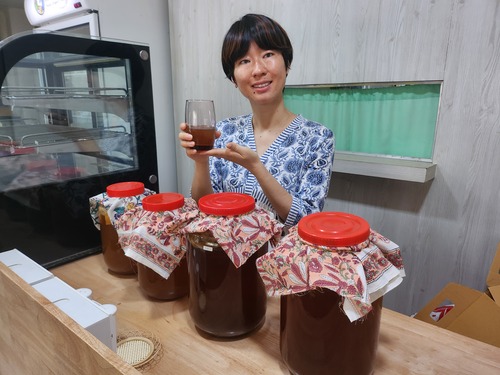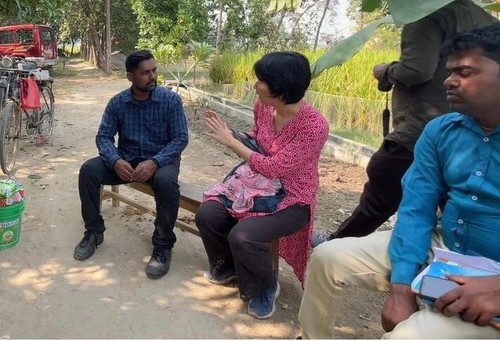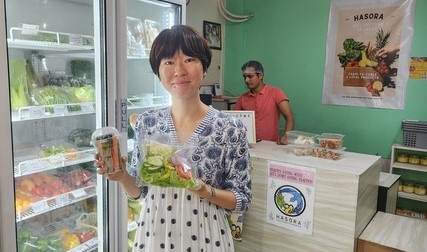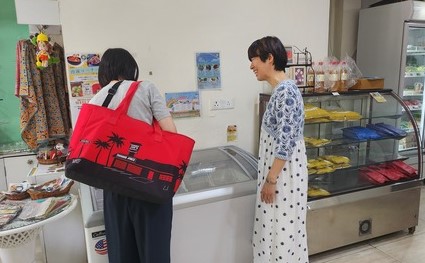Japanese twin sisters transforming Indian agri scene with farm-to-table concept
Mai and Asuka Hatta sisters bridge cultures and also empower local farmers through their innovative enterprise HASORA Café & Store.
New Delhi/Gurugram (SUNDAY SPECIAL FEATURE): When Japanese twins Mai and Asuka Hatta moved to India in 2010-12 looking for a career in corporate sector, did not know they would have to shift their path to become entrepreneur in the Indian organic farming landscape. Originally from Chiba Prefecture in Japan, the duo later got inspired by the challenges faced by Japanese residents in acquiring fresh and safe vegetables. In 2016, the duo launched their own “Farm-to-Table” venture HASORA Café & Store, dedicated to delivering straight-from-the-farm organic produce, in Gurugram near New Delhi.

It is now famous not only amongst Japanese but Indians too whose number is growing slowly. They love to taste authentically produced organic food including homemade Kombucha tea, natto, Kimchi, Lemon Squash Juice, soy sauce, green tea, lettuce Hydroponically grown Vegetables, and many more. Bakery items could be the next in the line of products they plan to add.
The place developing a community that loves Japanese culture and wants to pick some good lifestyle habits. It is also helping Indians to understand the Japanese culture besides tasting food and beverages.
While explaining the very concept behind their venture, Mai and Asuka, said, “Understanding that the infrastructure in India often results in harvested vegetables taking a long time to reach store shelves, we formed partnerships with local organic farmers. This collaboration ensured that our store could offer produce harvested on the day or the day before.

In the conventional Indian market, farmers earn only a small fraction of the retail price of their produce, typically around 10% to 30%. This is due to the involvement of multiple intermediaries. For example, farmers earn merely ¥10 to ¥20 per kilogram of potatoes. Mai and Asuka’s direct-from-farm approach aimed to increase farmers’ profits by cutting out these intermediaries.
Driven by a desire to change the social status of small-scale farmers in India, the Hatta sisters persevered through numerous challenges. Just as their business began to grow, the COVID-19 pandemic hit, causing a sharp decline in sales as their primary customers, Japanese residents, returned home during lockdowns. Despite this, Mai and Asuka continued their operations, driven by the belief that providing fresh, healthy food could bring some happiness during difficult times.

The pandemic brought a shift in consumer behavior in India, with a rising demand for organic and farm-fresh foods. This trend played into Hasora’s strengths, and they saw increased interest in their produce. To cater to the growing demand for vegetables used in Japanese cuisine, the sisters added a café to their store, offering customers a taste of traditional Japanese dishes.
Mai and Asuka’s journey wasn’t without its difficulties. Initially, they started HASORA from a small basement space in DLF City 2 on May 5, 2016. They faced trust issues with some local farmers who took money without delivering produce. This experience led them to adopt stricter business practices, ensuring payment was only made upon receipt of goods.
Their efforts extend beyond merely selling vegetables. Through the “Oishii Nippon Project,” they encourage the cultivation of Japanese vegetables in India by providing seeds and technical expertise to local farmers. This initiative supports sustainable agricultural practices and aims to uplift both the farming community and the environment.
They also source products from Allahabad Organic Agriculture Cooperative run by a Japanese professor, Teuro Miura.
The name “Hasora” reflects the essence of their mission. In Japanese, it means “green leaves growing under the expansive blue sky,” symbolizing growth, serenity, and happiness. It also derives from the Hindi word “Hasna,” meaning “to laugh,” encapsulating the joy and prosperity they wish to spread.

Fluent in Hindi, Mai and Asuka actively engage with local farmers, ensuring effective communication and stronger relationships. Their physical store in Gurgaon has become a hub for fresh Japanese vegetables, grocery items, Korean specialties, and Indian essentials.
Through their entrepreneurial spirit and cultural fusion, Mai and Asuka Hatta have created a bridge between Japan and India. Their dedication to organic farming, fair trade practices, and cultural integration continues to drive their success. They envision a future where their business grows alongside the farmers they support, promoting both economic empowerment and sustainable agriculture.


